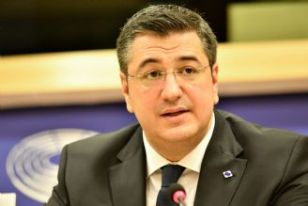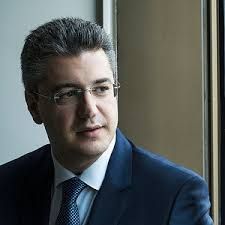EU CoR President: safety nets agreed by Eurogroup must support local leaders' efforts to provide public and health services
European Committee of the Regions
-
4/13/2020 8:35:00 PM

Statement of the President of the European Committee of the Regions, Apostolos Tzitzikostas
The Eurogroup agreement on euros540bn safety nets is a sign of European solidarity and unity. It is good news for thousands of local leaders who struggle to provide health and basic services, while their budgets shrink because of increased costs and loss of fiscal income.
The European Investment Bank (EIB) and European Stabilisation Mechanism (ESM) must help Presidents of Regions and Mayors across Europe to protect citizens and provide the services their communities need. In this emergency situation, collecting waste, ensuring local transport and guaranteeing social services is more difficult and expensive, while healthcare capacity is put at severe test. Freezing of the business activities in tourism, recreational and food services, leads to a considerable loss of local fiscal income.
I call on EU's heads of State and Government to take into account the specific needs of regions and cities across Europe, and to make sure that a fair share of the funds unleashed by the EIB and ESM directly support them.
I also call for an ambitious recovery plan including a strand for local public finance and focusing on boosting resilience and sustainability of our local communities. Our Committee will provide its proposals for a robust recovery plan based on the EU budget in the shortest delay, building on the direct experience and of the feedback of its members on the frontline.
President
Apostolos Tzitzikostas

Apostolos Tzitzikostas was elected as President of the European Committee of the Regions (CoR) in febbruary 2020 after serving as President of the Greek delegation and Vice president of the Committee since july 2017. He is also Governor of the Region of Central Macedonia.
BIOGRAPHY
Apostolos Tzitzikostas was born on September 2, 1978. He studied Government and International Relations at Georgetown University, in Washington DC. After graduating in 2000, he had his first working experience at the Office of the President of the Committee on Foreign Affairs of the United States Congress. In 2002 he obtained a Masters Degree on European Public Policy and Economics from the University College of London. Following his studies, he created his own company on the field of production, processing and standardization of dairy products, based on organic standards.
In 2007, he was elected Member of the Greek Parliament with the Nea Demokratia Party (EPP) in the First District of Thessaloniki. In the Regional Elections of November 2010 he was elected Vice-Governor of the Region of Central Macedonia and Head of the Metropolitan Area of Thessaloniki. On the Regional Elections of May 2014 he was elected Governor of the Region of Central Macedonia, and on the Regional Elections of May 2019 was re-elected Governor of the Region of Central Macedonia. On November 2019 he was elected President of the Association of Greek Regions.
Since 2015 he is a Member of the European Committee of the Regions. In July 2017, he was elected Head of the Greek Delegation and Vice-President of the European Committee of the Regions. He fluently speaks English and French and his articles are regularly being published in Greek and foreign newspapers and magazines.